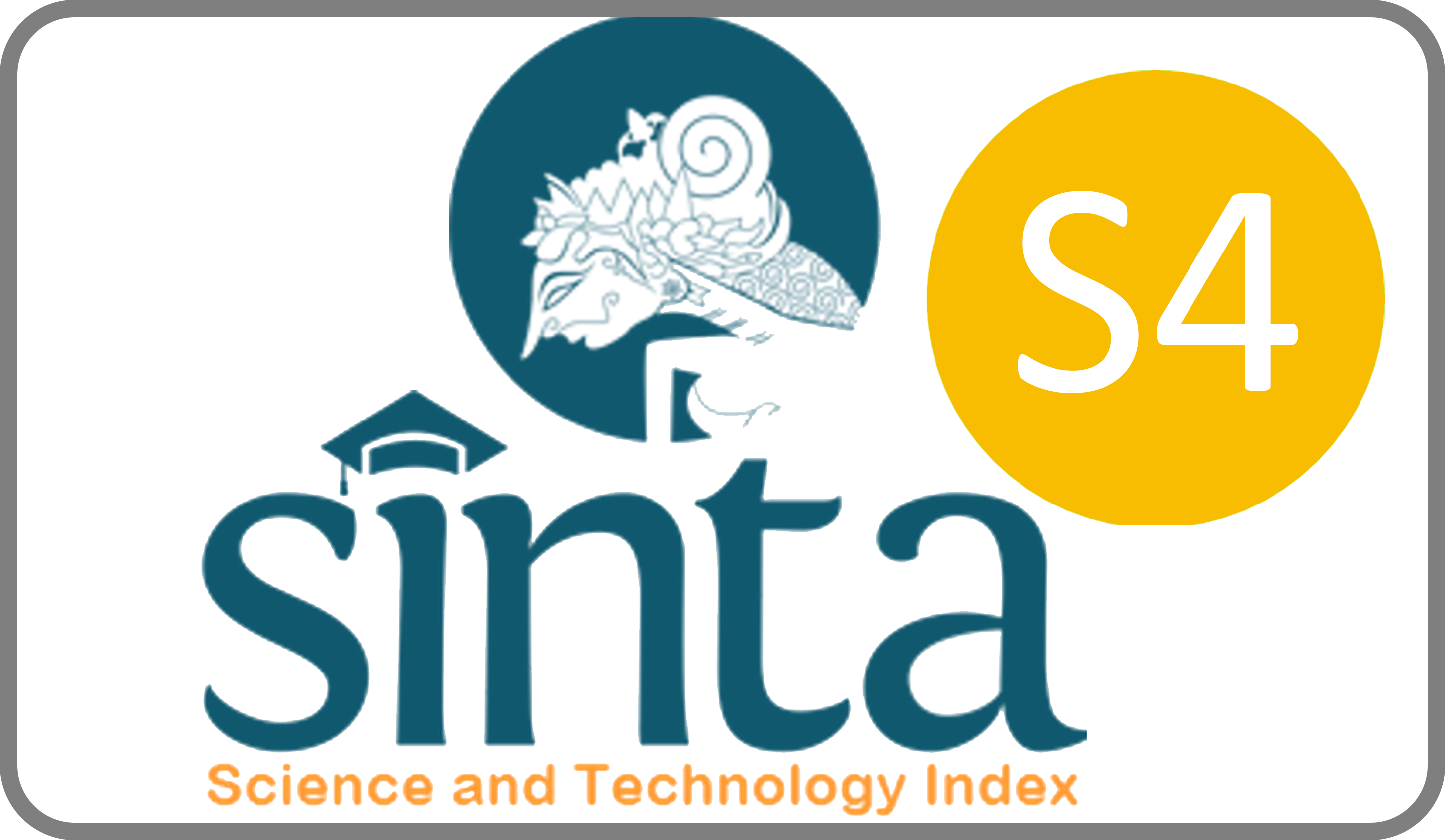POSITIVE DEVIANCE PROGRAM DEVELOPMENT TO IMPROVE NUTRITION OF CHILDREN IN MOJOSARI VILLAGE, KALITIDU
Downloads
Nutrition is one of the things that is still a global problem, including in Indonesia. Inadequate nutrition from in the womb to birth can cause various health problems for both mother and baby. One of the health problems that can occur in children under five due to malnutrition is stunting. This community service activity was held in Mojosari Village, Kalitidu, Bojonegoro. Undernutrition of children under five is one of the problems that must be addressed by the village government of Mojosari because based on Posyandu data, it was noted that in 2019 there were 38 underfives who were malnourished. The purpose of this community service is as an effort to improve nutrition for malnourished toddlers in Mojosari Village. The community service stages started from problem identification by obtaining primary and secondary data from observations, FGD, indept interviews and questionnaires as well as data from posyandu, ponkesdes and puskesmas. The data then obtained several lists of problems which were then prioritized using the CARL method so that the priority problem was obtained, namely malnutrition. After that, look for the root of the problem using the problem tree diagram, then prioritize alternative solutions using the MEER method. The results of the calculation of the MEER method found the priority alternative solutions, namely the development of the positive deviance (PD) program. So that the community service program carried out is the BOHLAM HATI Program (Providing Processed Healthy Nutritious Food) which contains a series of activities, namely the provision of nutritious food, the innovation of the RAZIA (Children's Nutrition Report) book, socialization in the form of talk shows, cooking demonstrations, and food decoration competitions. This series of activities is expected to increase the participation of mothers and toddlers in the PD program so that it can improve nutrition and reduce the number of under-five malnutrition.
Aditya Pradani, Estri, Dewi Lelonowati, and Sujianto Sujianto. 2017. "Keterlambatan Pengumpulan Berkas Verifikasi Klaim BPJS Di RS X: Apa Akar Masalah Dan Solusinya?” Jurnal Medicoeticolegal Dan Manajemen Rumah Sakit 6 (2): 107–14. https://doi.org/10.18196/jmmr.6134.
Alamsyah, Dedi, Maria Mexitalia, Ani Margawati, Suharyo Hadisaputro, and Henry Setyawan. 2017. "Beberapa Faktor Risiko Gizi Kurang Dan Gizi Buruk Pada Balita 12-59 Bulan (Studi Kasus Di Kota Pontianak).” Jurnal Epidemiologi Kesehatan Komunitas 2 (1): 46. https://doi.org/10.14710/jekk.v2i1.3994.
Ayuningtyas, Dumilah. 2013. Perencanaan Strategis Untuk Organisasi Pelayanan Kesehatan. Jakarta: PT. Rajagrafindo Persada.
Dinas Kesehatan Kabupaten Bojonegoro. 2019. "Profil Kesehatan Kabupaten Bojonegoro Tahun 2019.” Profil Kesehatan Kabupaten Bojonegoro Tahun 2019. http://dinkes.pemalangkab.go.id/download/pk-dinkes-tahun-2019/.
Kementerian Kesehatan RI. 2018. "Hasil Utama RISKESDAS 2018.” Jakarta. https://kesmas.kemkes.go.id/assets/upload/dir_519d41d8cd98f00/files/Hasil-riskesdas-2018_1274.pdf.
Mojosari, Desa. 2019. "Profil Desa Mojosari Kecamatan Kalitidu Kabupaten Bojonegoro Tahun 2019.” Bojonegoro.
Nurdianna, Fitri. 2018. "Implementasi Program Pengelolaan Sampah Guna Meningkatkan Kesehatan Masyarakat (Studi Di Desa Jatimulyo, Dusun Nglambangan, Bojonegoro, Dusun Nglambangan, Kecamatan Tambakrejo, Bojonegoro).” Jurnal Kesehatan Pena Meduka Vol 8 (2) Des 2018.
Sukma, Hafiza Ajeng Dianing. 2020. "Sosialisasi Dan Demo Masak Untuk Menurunkan Jumlah Balita Stunting Dan Wasting Di Desa Grebekan, Kalitidu.” Jurnal Layanan Masyarakat Universitas Airlangga 4: 267–74.
Walid, Ahmad, Dkk. 2019. "Pembelajaran Biologi Menggunakan Problem Solving Disertai Diagram Tree Untuk Memberdayakan Tree Diagram To Empower Logical Thinking And.” Indonesian Journal of Integrated Science Education ( IJIS Edu ) 1 (1): 1–6.
Widodo, Oky Setyo, Sunaryo Hadi Warsito, and Shelly Wulandari. 2018. "Peningkatan Kesehatan Masyarakat Melalui Pengetahuan Penyakit Zoonosis Di Kecamatan Kepohbaru Kabupaten Bojonegoro.” Jurnal Layanan Masyarakat Universitas Airlangga 02: 56–59.
JLM by Unair is licensed under a Creative Commons Attribution-ShareAlike 4.0 International License.
1. The journal allows the author to hold the copyright of the article without restrictions.
2. The journal allows the author(s) to retain publishing rights without restrictions
3. The legal formal aspect of journal publication accessibility refers to Creative Commons Attribution Share-Alike (CC BY-SA).
4. The Creative Commons Attribution Share-Alike (CC BY-SA) license allows re-distribution and re-use of a licensed work on the conditions that the creator is appropriately credited and that any derivative work is made available under "the same, similar or a compatible license”. Other than the conditions mentioned above, the editorial board is not responsible for copyright violation.


















